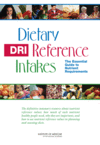The scientists on your list may not always be the easiest people to shop for during the holidays. It should come as no surprise that we have recommendations. Take five and finish your holiday shopping with our most-recommended books for the health professional in your life.
 |
Women’s Health Research: Progress, Pitfalls, and Promise Even though slightly over half of the U.S. population is female, medical research historically has neglected the health needs of women. However, over the past two decades, there have been major changes in government support of women’s health research… |
 |
Preventing Mental, Emotional, and Behavioral Disorders Among Young People: Progress and PossibilitiesMental health and substance use disorders among children, youth, and young adults are major threats to the health and well-being of younger populations which often carryover into adulthood. The costs of treatment… |
 |
Retooling for an Aging America: Building the Health Care Workforce As the first of the nation’s 78 million baby boomers begin reaching age 65 in 2011, they will face a health care workforce that is too small and woefully unprepared to meet their specific health needs. Retooling for an Aging America calls for… |
 |
Preventing Childhood Obesity: Health in the Balance Children’s health has made tremendous strides over the past century. In general, life expectancy has increased by more than thirty years since 1900 and much of this improvement is due to the reduction of infant and early childhood mortality. Given this… |
 |
Dietary Reference Intakes: The Essential Guide to Nutrient RequirementsWidely regarded as the classic reference work for the nutrition, dietetic, and allied health professions since its introduction in 1943, Recommended Dietary Allowances has been the accepted source in nutrient allowances for healthy people. Responding to the expansion of scientific … |